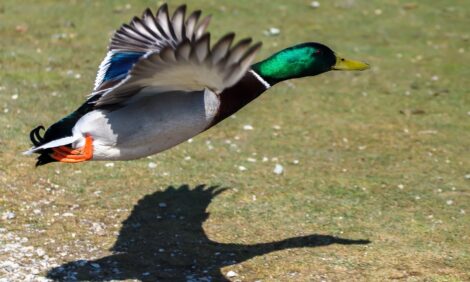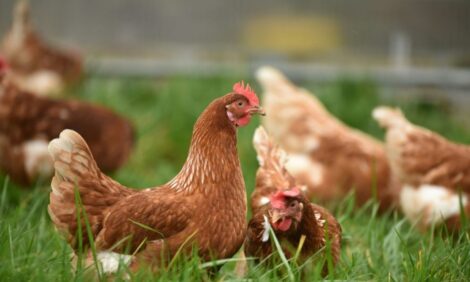



Effect of Monochromatic LED Light on Reproductive Traits of Laying Hens
New research from China suggests that light colour can affect egg production as well as egg weight, shape, composition, fertility and hatchability.Artificial illumination is an important exogenous factor in the control of many physiological and behavioural processes in the management of layers, according to Qing Zhu from Sichuan Agricultural University in China and others there and at the University of California, Davis.
In a paper published in the current issue of Journal of Applied Poultry Research, they report their research, which aimed to examine the effect of monochromatic light on reproductive traits, fertility and quality of eggs of local mountainous laying hens of China.
A total of 552 19-week-old hens were randomly divided into four groups, with each group consisting of 138 birds. Feed and water were provided ad libitum.
Light treatments – using light-emitting diodes (LEDs) – were control white (mini-incandescent light bulbs), blue (480nm), green (560nm) and red (660nm).
Birds maintained under green light produced fewer eggs than other groups.
The red light group had a greater egg shape index than other groups and had greater fertility and hatchability than other groups.
Egg weight was affected by light wavelength but the rate of egg production was not.
The ratio between egg components can be changed by the light source without changing the egg weight.
Egg quality was the best for hens exposed to the green light.
Reference
Li D., L. Zhang, M. Yang, H. Yin, H. Xu, J.S. Trask, D.G. Smith, Z. Zhang and Q. Zhu. 2014. The effect of monochromatic light-emitting diode light on reproductive traits of laying hens. J. Appl. Poult. Res. 23(3):367-375. doi: 10.3382/japr.2013-00746
September 2014








